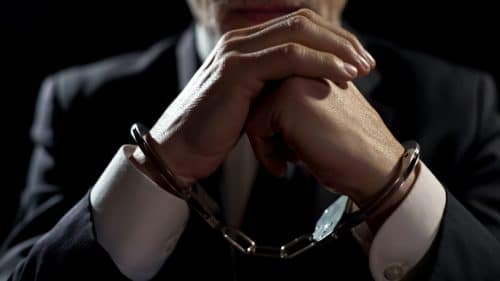
In some circumstances, causing an accident can result in both civil and criminal consequences for the at-fault party. A drunk driving accident is a common example. Any motorists or pedestrians injured in the crash might file a personal injury claim against the driver, who could be charged with DUI.
You may be wondering how this would effect your personal injury case if you were hurt in an accident where the at-fault party is facing criminal charges. Keep reading to get answers to some of the most common questions we see and then contact The Law Offices of Larry H. Parker at 800-333-0000 for a free legal consultation.
What if the charges against the at-fault party are dismissed?
Just because the criminal charges against the individual who hurt you were dropped doesn’t imply your personal injury claim should be dismissed as well. The prosecution must establish that the defendant committed a crime in a criminal case, whereas your attorney must prove that the defendant’s carelessness caused you to suffer a harm in a civil case.
These are two distinct concerns. Even if there is insufficient evidence to support criminal charges, you can still pursue a civil action. Consider the case of Eric Garner: despite the fact that a grand jury declined to charge the officer who killed him, his family was awarded $5.9 million in a wrongful death judgment.
What happens if the defendant is not found guilty?
A not guilty verdict does not inevitably imply your personal injury case will be dismissed. It’s critical to recognize that the standards of proof in civil and criminal proceedings are different. A defendant must be proven guilty beyond a reasonable doubt in criminal court. In civil court, you just need to prove that the evidence leads to their guilt by a majority of the evidence. This is why civil and criminal courts might reach opposite conclusions on the same subject.
What if the defendant pleads guilty or is convicted of the charge?
A guilty conviction may be helpful in proving your personal injury case. If a motorist pleads guilty to or is found guilty of DUI in criminal court, for example, this will assist prove that they were in fact intoxicated at the time of your vehicle accident and so accountable for your losses.
What if the defendant enters a plea of no contest?
When a defendant enters a plea of no contest rather than guilty, they are acknowledging that the facts of the accusation against them are true but they are not guilty. This is significant because in civil court, a no contest plea cannot be used against the defendant. Instead of relying on a DUI conviction to demonstrate alcohol impairment, the plaintiff will have to summon witnesses such as the arresting officer or submit evidence such as the results of a breathalyzer test.
If you have been injured in an accident in which someone else was at fault, contact The Law Offices of Larry H. Parker at 800-333-0000 for a free legal consultation.



